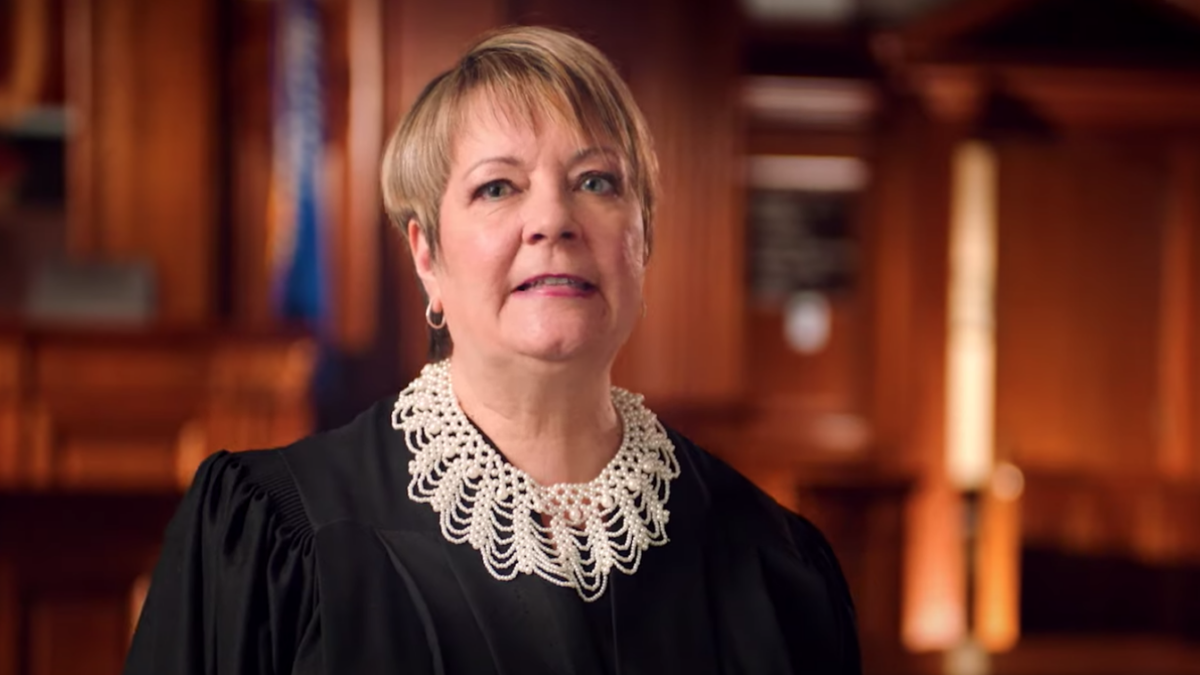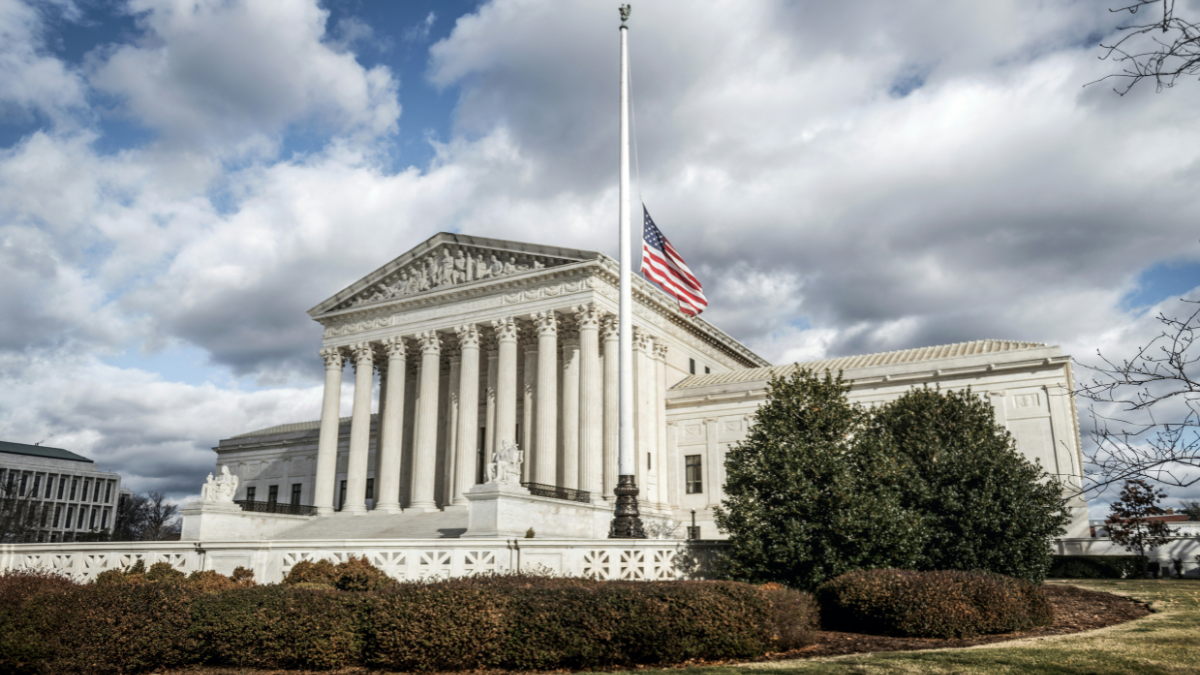The statues of Lady Justice that stand outside courthouses across the country show her blindfolded for a reason: They represent the fundamental commitment of our justice system to fair, impartial judges. That concept is not only an aspiration, but a constitutional guarantee: Inherent in the 14th Amendment’s promise of “due process of law” is the principle that judges who hear cases at all levels will be fair, unbiased, and open-minded as to the litigants and issues before them.
That promise is being put to the test in my home state of Wisconsin, where newly elected Justice Janet Protasiewicz is currently considering a motion to recuse from a case involving the state’s legislative districts. Wisconsin elects its judges, and during the campaign last spring then-Judge Protasiewicz went further than any previous candidate in announcing her views on the campaign trail. Although the maps were approved 17 months ago by the Wisconsin Supreme Court and the law has not changed, Judge Protasiewicz called the maps “gerrymandered,” “rigged,” “unfair,” and “wrong,” going so far as to say that “anybody with any sense knows our maps are rigged.” She said it multiple times, in multiple places, with intention. She knew the issue would motivate Democrat voters to turn out, and she played that card boldly, deciding to prioritize electoral success over ethical expectations.
What is more, the Democratic Party of Wisconsin also heard her aggressive rhetoric loud and clear. The party, which can take unlimited funds into its coffers and make unlimited transfers to candidates, ultimately gave almost $10 million to her campaign in direct donations.
Immediately following her election last April, left-wing activists in Wisconsin promised a petition to revisit the maps. But they did not file their lawsuit right away — they waited several months during the lame-duck tenure of the prior justice and then filed their petition demanding immediate action the day after Justice Protasiewicz was sworn in. Their contrived timeline is the definition of judge-shopping.
Now that the case is pending, some in Wisconsin want to rush into a debate about impeachment and misconduct in office, but that puts the cart before the horse. The first step is simple and obvious: Protasiewicz should recuse from the case. Her campaign activities may have been protected by the First Amendment, but that does not mean her sitting on the case does not violate the due-process guarantee of the 14th Amendment.
As Justice Ann Walsh Bradley, leader of the liberal block on the court, wrote in 2015, “A fundamental principle of our democracy is that judges must be perceived as beyond price.” As a result, “the right to an impartial decisionmaker stretches beyond the absence of actual bias to encompass the appearance of bias as well.” In this instance, Protasiewicz’s repeated, intentional comments communicating her views about this particular case mean “a reasonable person could question the judge’s impartiality.”
Of course, Democrats in Wisconsin, having sunk millions into her campaign, are loath to see her recuse from the case. The irony is that while Wisconsin Democrats are proclaiming to the high heavens the importance of a full bench and the priority of her free speech rights, Democrats in D.C. are trying to get Justice Samuel Alito to recuse himself because he gave a news interview to an attorney who moonlights as a journalist, and that lawyer is now on one of the cases pending at the U.S. Supreme Court.
Ten Democrat senators who sit on the Senate Judiciary Committee signed a joint letter saying anything short of recusal by Alito would cause “damage to public confidence in the Court.” Alito filed a short opinion explaining the long tradition of justices sitting on cases involving news outlets to whom they had also given interviews, but the broader point remains the disconnect between D.C. Democrats, who are insisting on artificial adherence to newly elevated ethical standards, and Wisconsin Democrats, who are ready to steamroll long-standing ethics expectations on their way to additional legislative seats.
True justice is necessarily impartial, neutral, and detached. Impartiality means the absence of bias or prejudice. It means maintaining an open mind. And it means not only the substance of impartiality but also the appearance of it, to ensure public confidence in our courts. Because that is not present here, the right thing to do is for Justice Protasiewicz to step aside in this case.








